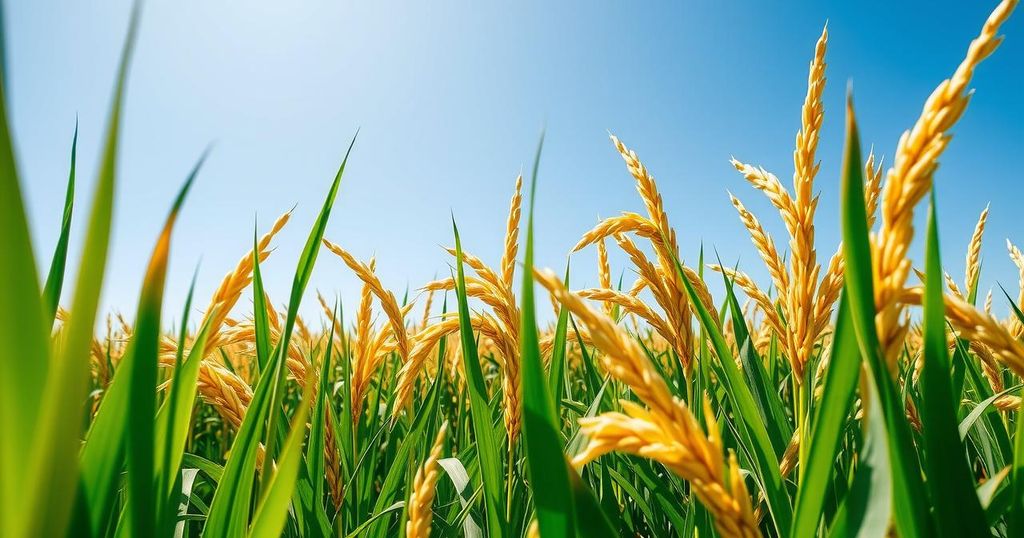Mozambique Sets Record for Rice Imports in 2024: An Increasing Reliance on Foreign Food Sources

Mozambique’s rice imports hit a record US$441 million in 2024, increasing by 38.8% from the previous year. Contributing factors include rising domestic consumption and falling local production due to adverse climate effects. The country’s reliance on imports raises concerns about food security, with calls for government investment in the agricultural sector to improve resilience and economic stability.
In 2024, Mozambique experienced a record high in rice imports, spending US$441 million. This reflects a 38.8% increase from 2023, when imports totaled US$317.7 million. The increased reliance on imports highlights the country’s challenges in meeting basic food needs, exacerbated by rising domestic consumption and declining production within Mozambique’s agricultural sector, which is impacted by structural issues and climate change.
Rice production data from 2023 shows a significant decrease, with only 161,800 tons produced, marking a 34% decline compared to the previous year. The National Institute of Statistics also noted reductions in the outputs of other key crops, attributed to adverse climatic conditions like floods and droughts, alongside insufficient investments in irrigation, quality seeds, and technical support.
To compensate for the drop in agricultural production, Mozambique has become increasingly dependent on foreign imports, thereby increasing its vulnerability to global food price fluctuations. This pattern poses a risk of heightened food insecurity among the poorest segments of the population.
Additionally, maize production declined by 11% in 2023, with a total output of 2.12 million tonnes. This decrease follows a notable increase in 2022, indicating a more concerning trend. Sorghum and millet production also fell, with sorghum down 15% to 139,553 tonnes and millet dropping by 32% to just 17,098 tonnes.
The combined effect of these agricultural shortfalls and record imports creates urgent concerns in Mozambique, where agriculture comprises over 20% of the GDP. Despite negative climatic influences, there exists significant potential for improving agricultural production through government investments aimed at addressing these fundamental challenges. A report from the Inclusive Growth in Mozambique development programme stresses the importance of deliberate, long-term investments in agriculture for enhancing food security and bolstering the economy.
The ongoing rise in rice imports underscores Mozambique’s growing dependency on foreign agricultural goods due to domestic production declines. The report indicates an urgent need for governmental intervention and investment in the agricultural sector to improve food security, enhance agricultural output, and reduce reliance on expensive imports. Addressing these issues through strategic investment can significantly benefit Mozambique’s economy and the livelihoods of its population.
Original Source: macaonews.org






